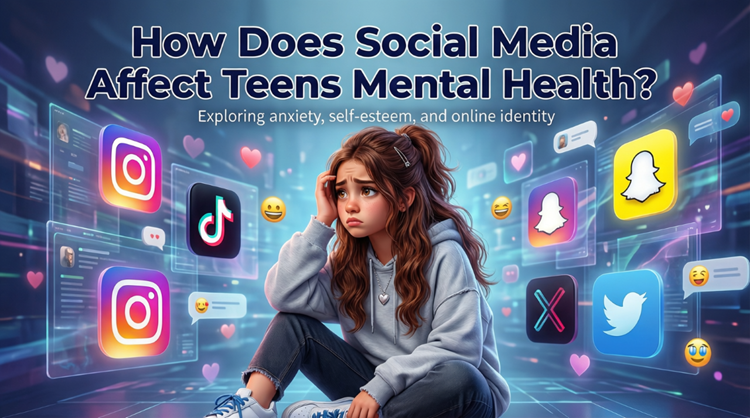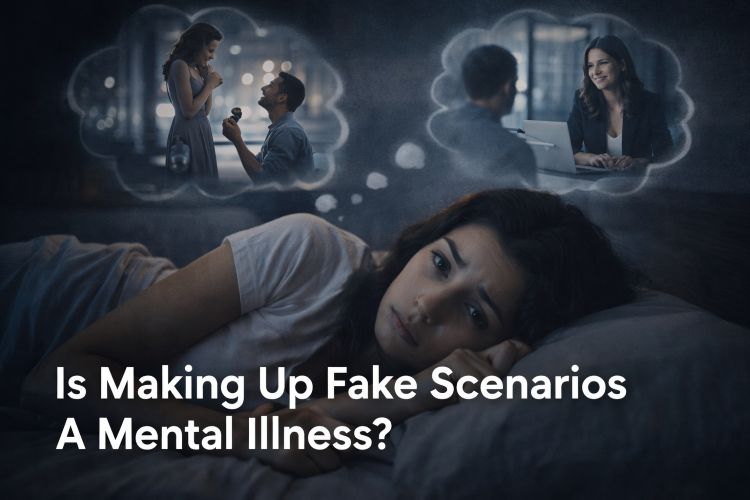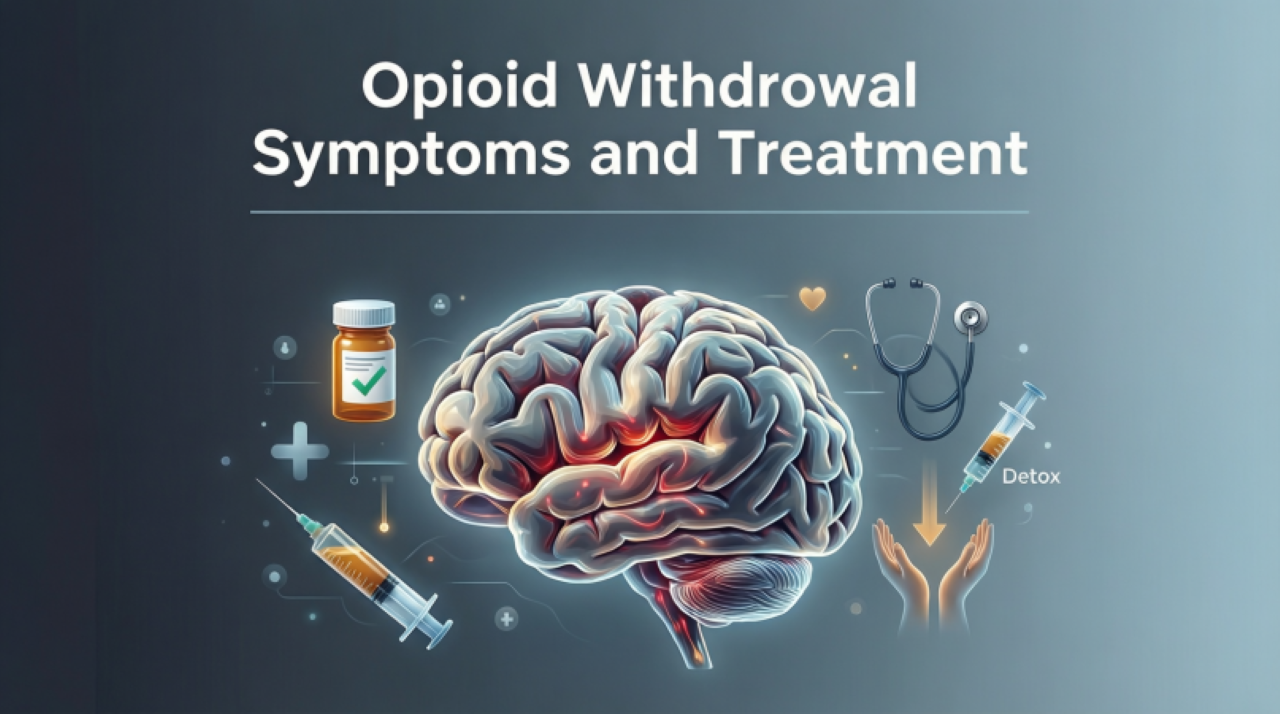The mood disorder is categorized as one of the most prevalent mental disorders that affects millions of people across the world. They determine how an individual sees, thinks and acts in his/her day-to-day life. Knowledge about mood disorders and its symptoms, causes and treatment will allow individuals and families to provide the appropriate help.
This blog will unravel all you need to know about mood disorders, its types, prevalence rates, and treatment measures that can be implemented to effectively treat the same.
What is a Mood Disorder?
Mood disorder is a mental disease that primarily influences the mood of a person. The mood disorders are typically identified by a prolonged period of deep sadness, emptiness, irritability or even a high mood e.g. mania.
The mood disorder symptoms are different in comparison to the normal mood fluctuations; i.e., symptoms are persistent, and they interfere with the day-to-day functioning, interpersonal relationships, work, and quality of life.
What are All the Mood Disorders?
Mood disorders are numerous, and each one contains different symptoms and challenges. The most well-known ones are:
- Major Depressive Disorder (MDD) – It is also referred to as mood disorder or major depression and it is defined by a sense of sadness, the lack of interest and hopelessness throughout at least two weeks.
- Bipolar Disorder – It is an illness characterized by a series of depressive episodes as well as manic or hypomanic episodes.
- Persistent Depressive Disorder (Dysthymia) –Chronic form of depression that has been in existence during the last two years or longer.
- Disruptive Mood Dysregulation Disorder (DMDD) – This is identified in children and adolescents and it is an extreme temper tantrums characterized by extreme irritability.
- Cyclothymic Disorder – This is the milder type of bipolar disorder that is also marked with episodes of low-level depression and hypomania.
- Seasonal Affective Disorder ( SAD ) – A type of depression, but is brought about by the change of the seasons, normally experienced in the winter months.
- Adjustment Disorder and Anxiety and Depressed Mood – It is the behavior and emotional conditions as a response to changes in life triggered by stress that lead to sadness, worry and loss of coping skills.
Is Anxiety a Mood Disorder?
Anxiety is not defined as mood disorder. Instead, it is categorized under anxiety disorders which is a separate set of mental disorders. However, anxiety and mood disorders may be comparable and the majority of people can have two disorders simultaneously. E.g. a depressed person may also have encountered generalized anxiety disorder.
Who Do Mood Disorders Affect?
Mood disorders have been known to affect any person, whether in early age, adult or an elderly individual. Yet there may be those groups which are not so recalcitrant:
- Women are more likely to have depression.
- Conditions such as disruptive mood disorder can be detected in early age.
- Individuals whose relatives have the history of mental illness are at greater risk.
- The symptoms revolving around the mood are often acquired by individuals who need to endure stressful life situations or have a chronic medical situation.
How Common are Mood Disorders?
The most prevalent form of mental health disorders is mood disorders in the United States and any other part of the world. The National Institute of Mental Health (NIMH):
- An estimated 21 million adults in the U.S. experienced major depression disorder at least one episode of major depression in 2021.
- Bipolar disease is estimated to occur once every year in 2.8 per cent. of the adult population.
- Depression and disruptive mood disorder are increasingly becoming prevalent in early age.
What are the Symptoms of Mood Disorders?
The type of symptoms differ, but some of the common symptoms of mood disorders may include:
- Constant depression or loneliness.
- Irritability or anger
- Loneliness or constant depression.
- Irritability or anger
- Loss of pleasure in things or activities.
- Fatigue and low energy
- Difficulty concentrating
- Sleep disorders (insomnia, or oversleeping)
- Change in appetite or weight.
- Mood or worthlessness.
- In extreme cases, suicidal ideations or thoughts and actions.
What Causes Mood Disorders?
The combination of genetic, biological, psychological and environmental factors makes mood disorders. Common causes include:
- Genetics – A familial history of either depression or bipolar disorder exposes to the risk.
- Brain chemistry – Adjustments in the quantities of neurotransmitters like serotonin, dopamine and norepinephrine.
- Trauma and stress – Abuse, loss or major life changes can lead to such disorders as adjustment disorder with anxiousness and depressed mood.
- Medical – Chronic illness, hormonal or nerve disease.
- Substance abuse – Alcohol abuse or drug abuse can worsen or bring about mood symptoms.
How are Mood Disorders Treated?
It is encouraging that mood disorders are treatable. The treatment itself is most often relative to the severity of the condition and it can involve a combination of the strategies:
- Therapy – Cognitive Behavior Therapy (CBT), Dialectical Behavior Therapy (DBT), and talk therapy allow one to get rid of the negative thinking styles.
- Drug – Antidepressants, mood stabilizers and antipsychotics are common drugs used.
- Lifestyle Change – Exercise, healthy eating, and sleep improve the mood.
- Support Systems – Family therapy, support group and peer connection assists in recovery.
Specialty Treatment Programs Specialty mental health treatment units like Florida Atlantic Coast Treatment Solutions provide specialized care to mood disorders and co-occurring disorders.

Conclusion
Mood disorders might appear hopeless, but through proper diagnosis and treatment, they are curable. Whether it is major depression in mood disorders, disruptive mood disorder or the adjustment disorder with anxiety and depression, treatment therapies and professional help can be applied to bring you or your loved one back to balance and well being.
You or someone you love are undergoing a rough time do not wait to inquire. Visit Florida Atlantic Coast Treatment Solutions and contact us at (844) 643-2287 and speak to an expert on how to treat someone compassionately.
FAQs About Mood Disorders
What are the causes of mood disorders?
Genetics, disrupted brain chemistry, trauma, chronic stress, medical disorders, or drug abuse can cause mood disorders.
What are the 7 types of mood disorders?
The key ones are major depressive disorder, bipolar disorder, persistent depressive disorder, disruptive mood disorder, cyclothymic disorder, seasonal affective disorder, and adjustment disorder with anxiety and depressed mood.
What are the treatments for mood disorders?
Psychotherapy, medication, lifestyle change and professional mental health services are the most common treatments.
What are the five treatments for mood disorders?
The five core interventions are the talk therapy, medication, lifestyle modification, support groups and treatment centers.
What are the top 3 mood disorders?
The most common ones are major depressive disorder, bipolar disorder and persistent depressive disorder.


